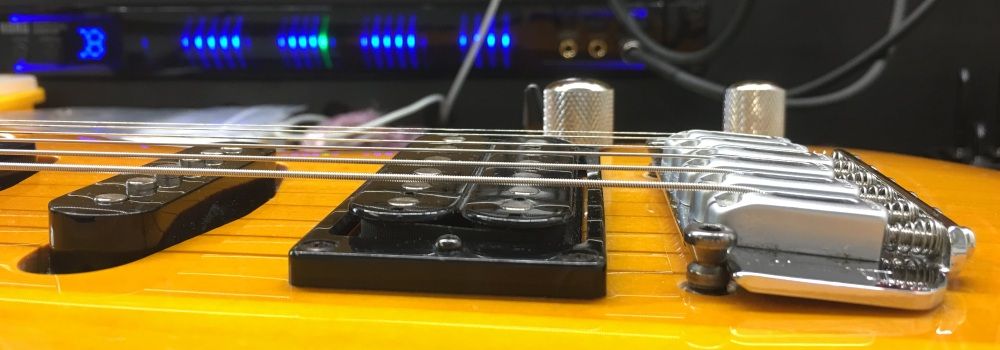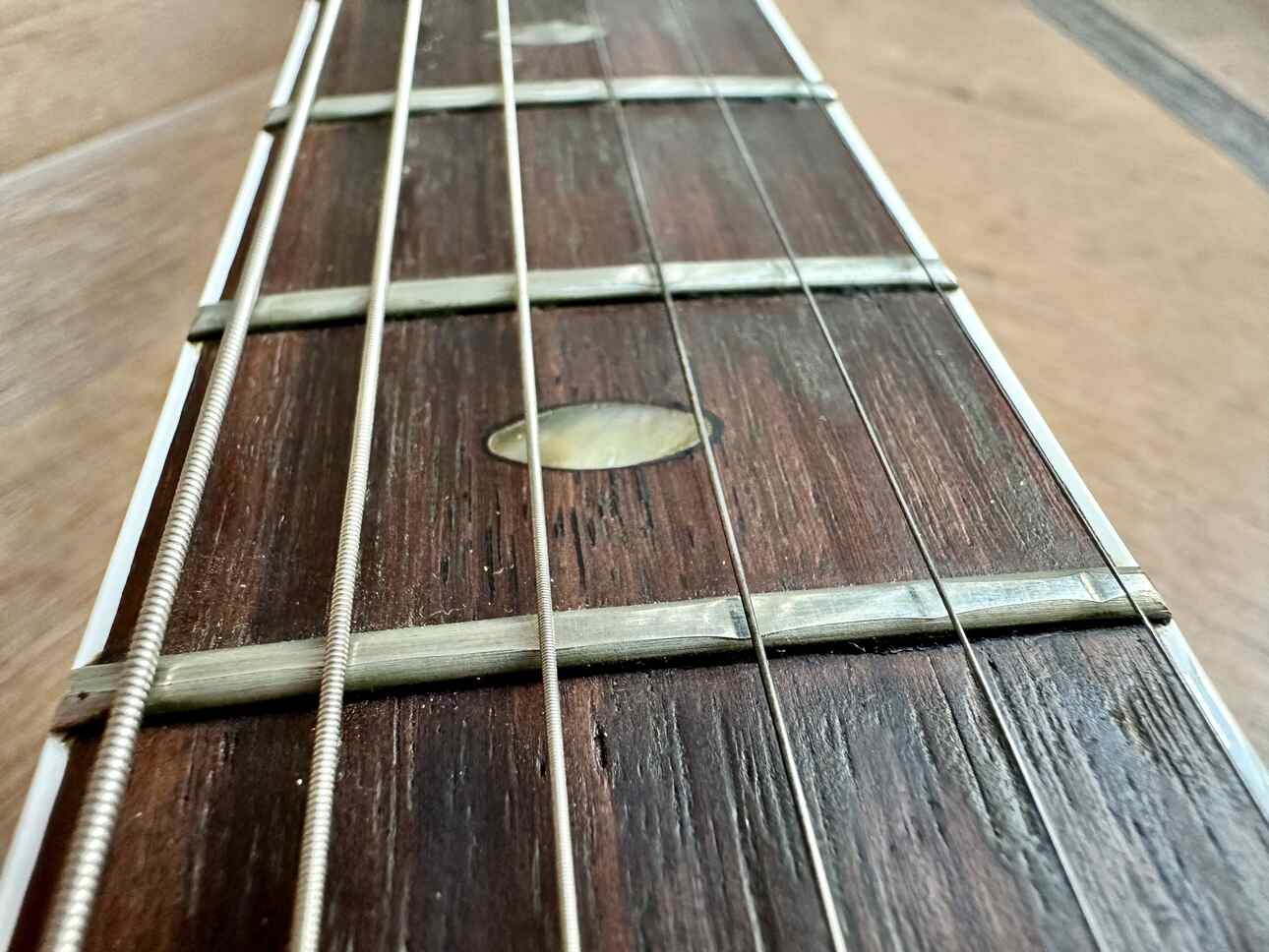Ah, the bond between a guitarist and their beloved instrument is a sacred one. Like a knight and their trusty steed, a guitarist relies on their guitar to carry them through epic solos and heart-wrenching ballads. But just like any loyal companion, a guitar requires regular care and maintenance to ensure it stays in top form. So grab your polishing cloth and tuning pegs, dear readers, as we embark on a whimsical journey through the essential tips for keeping your guitar in tip-top shape for years to come.
Contents
- 1 Understanding Humidity and Temperature Effects on Guitars
- 2 Choosing the Right Cleaning Products and Techniques
- 3 Regular String Changes to Maintain Sound Quality and Guitar Health
- 4 The Importance of Proper Storage for Guitar Longevity
- 5 Navigating Neck and Fretboard Maintenance
- 6 Ensuring Hardware and Electronics are Functioning Properly
- 7 Professional Maintenance: When to Seek Expert Help
- 8 Is it time to call in the big guns? Here are some tell-tale signs that it might be time to bring in the experts:
- 9 FAQs
- 10 Strum on, Guitar Heroes!
Understanding Humidity and Temperature Effects on Guitars
So, you’ve finally decided to learn the guitar and rock out like a pro. But before you start strumming those chords, it’s important to understand how humidity and temperature can affect your beloved instrument.
Let’s break it down for you:
- Humidity: Too much humidity can cause your guitar to swell, resulting in a warped neck or bulging top. On the other hand, low humidity can dry out the wood, causing cracks or shrinking. It’s like Goldilocks and the Three Bears - you want it to be just right.
- Temperature: Extreme temperatures can wreak havoc on your guitar. Cold temperatures can cause the wood to contract, while high heat can soften the glue that holds your guitar together. It’s like putting your guitar through a sauna or a freezer – neither are good for its health.
So, what can you do to protect your guitar from these weather woes? Well, you can invest in a humidifier to regulate the humidity levels, store your guitar in a protective case when not in use, and avoid leaving it in direct sunlight or near heating vents. Treat your guitar like the delicate flower that it is, and it will reward you with sweet, sweet music.
Choosing the Right Cleaning Products and Techniques
So you’ve decided to finally tackle that cleaning project that’s been haunting you for weeks. But before you roll up your sleeves and dive in, it’s important to make sure you’re armed with the right cleaning products and techniques. Here’s a few tips to help you choose wisely:
First things first, consider what type of surface you’re cleaning. Different surfaces require different cleaning products, so make sure you’re using the appropriate cleaner for the job. Pro tip: always read the labels and follow the manufacturer’s instructions. You don’t want to accidentally bleach your favorite shirt while trying to clean your countertops.
Next, think about what kind of cleaning technique will work best for the job at hand. Are you scrubbing, wiping, or spraying? Maybe a combination of all three? Remember: sometimes a little elbow grease goes a long way, so don’t be afraid to get in there and really scrub up a storm.
And finally, don’t forget to consider the environmental impact of the products you choose. Look for eco-friendly options that are gentle on the earth and on your skin. Your home will thank you, and so will Mother Nature. It’s a win-win!

Regular String Changes to Maintain Sound Quality and Guitar Health
So you’ve been jamming out on your guitar for hours on end, shredding like a rockstar. But have you stopped to consider the poor strings that bear the brunt of your musical genius?
Regular string changes are essential to maintain optimal sound quality and keep your guitar in top shape. Think of it like giving your guitar a spa day – pampering it with fresh, crisp strings to ensure it sings sweet melodies.
Not convinced? Here are a few reasons why regular string changes are a must:
- Enhanced Sound Quality: Fresh strings = better sound. It’s science.
- Prevent Rust and Corrosion: Old, rusty strings are a breeding ground for ickiness. Keep ’em fresh!
- Improved Playability: Smooth, new strings make playing effortless. No more finger-busting sessions!
So don’t neglect your faithful guitar – show it some love with regular string changes. Your ears (and your guitar) will thank you!

The Importance of Proper Storage for Guitar Longevity
So you’ve finally invested in that beautiful guitar you’ve been eyeing for months. You strum it lovingly, marveling at the beautiful tones it produces. But wait – have you thought about how you’re going to store it when you’re not playing? Proper storage is key to ensuring your guitar’s longevity, so let’s dive into why it’s so important.
First off, let’s talk about moisture. Your guitar is like a delicate flower that needs just the right amount of moisture to thrive. Storing it in a dry environment can cause the wood to crack, while too much moisture can lead to warping. Be sure to keep your guitar in a room with stable humidity levels to avoid any unwanted surprises.
Next up, temperature. Just like Goldilocks, your guitar wants the temperature to be just right. Extreme heat can damage the finish and cause the wood to expand, while extreme cold can cause it to contract. Find a cozy spot for your guitar where it can stay comfortable and happy.
Lastly, let’s not forget about protection. Your guitar is like a prized possession, so treat it like royalty! Invest in a sturdy case to shield it from dust, bumps, and spills. Keeping it safe and sound will ensure that it stays in tip-top shape for years to come.

Do you feel like you’re lost in a guitar jungle when it comes to ? Fear not, fellow musicians! With a little know-how and a touch of humor, you can easily become a guitar maintenance maestro.
First things first, let’s talk about cleaning your fretboard. This is where all the magic happens, so you want to keep it in top shape. Grab a soft cloth and some guitar fretboard oil. Gently wipe down the fretboard to remove any dirt or grime, then apply a small amount of oil to keep it hydrated. Your fretboard will thank you with some silky smooth playing.
Next up, adjusting your truss rod. This can be a bit intimidating, like trying to navigate through a maze without a map. But fear not, brave guitarist! With a little patience and a trusty Allen wrench, you can easily adjust the truss rod to keep your neck straight and true.
Lastly, let’s talk about string action. This is where things can get a bit tricky, like trying to find your way through a guitar-shaped labyrinth. Use a ruler to measure the distance between the bottom of the string and the top of the fret. Adjust the saddle height until you find that sweet spot where your fingers glide effortlessly across the fretboard.
Ensuring Hardware and Electronics are Functioning Properly
When it comes to ensuring your hardware and electronics are functioning properly, it’s important to stay on top of maintenance and troubleshooting. Here are some tips to keep everything running smoothly:
- Regular dusting: Dust and other particles can build up in your electronics and cause them to overheat. Make sure to dust your devices regularly to prevent any potential issues.
- Check for updates: Keep your software and drivers up to date to ensure optimal performance. You don’t want your hardware feeling neglected and unloved!
- Test your connections: Make sure all cables and cords are securely connected. You don’t want your electronics feeling disconnected and alone!
And remember, if all else fails, a good old-fashioned reboot can work wonders. Sometimes all your hardware needs is a little nap to refresh itself. So show your electronics some love and they’ll reward you with peak performance!
Professional Maintenance: When to Seek Expert Help
Is it time to call in the big guns? Here are some tell-tale signs that it might be time to bring in the experts:
Do you find yourself staring blankly at your malfunctioning equipment, pretending you know what you’re doing? It might be time to admit defeat and give the professionals a call. After all, there’s no shame in admitting that you need a little help from someone who actually knows what they’re doing.
Are you spending more time fixing things than actually using them? If you find yourself constantly tinkering with your equipment instead of actually getting work done, it’s time to bring in the pros. Let’s face it – your time is better spent doing literally anything else.
Have you tried every trick in the book and still can’t solve the problem? If you’ve exhausted all of your DIY options and your equipment is still on the fritz, it’s time to wave the white flag and bring in the experts. Sometimes you just need a fresh pair of eyes (and hands) to tackle the issue.
Remember, there’s no shame in admitting defeat and seeking professional help. In fact, it’s the smart move! So why waste time and energy trying to fix something yourself when you can just sit back, relax, and let the experts do all the hard work for you? Just sit back, relax, and let the pros work their magic.
FAQs
How often should I clean my guitar?
As often as you want to impress your significant other with your shiny instrument! But in all seriousness, wiping down your guitar after each use is a good habit to get into.
What is the best way to clean my guitar strings?
Well, some might say a little serenade to your guitar strings is the best form of cleaning! But in reality, using a soft cloth to wipe them down after each use will do the trick.
How important is it to humidify my guitar?
Think of it this way – would you want to live in a dry, dusty environment? No? Well, neither does your guitar! Keep it happy and healthy by using a humidifier to maintain optimal conditions.
Should I change my guitar strings regularly?
Only if you want your guitar to sound like a million bucks! Fresh strings not only sound better but also play better. Treat your guitar to some new strings every few months.
How can I protect my guitar from damage?
Think of your guitar as your precious baby - handle it with care! Invest in a sturdy case, avoid extreme temperatures, and never leave it in a car on a hot day. Your guitar will thank you!
Strum on, Guitar Heroes!
So there you have it, fellow guitar enthusiasts! Armed with these expert tips for guitar care, you’ll be well-equipped to keep your beloved instruments in tip-top shape for years to come. Remember, a well-maintained guitar is a happy guitar – and a happy guitar means happy strumming sessions for you! So go forth, dear readers, and rock on with your perfectly maintained guitars. May your strings always be in tune and your frets always be clean. Keep on strumming, and keep on shining like the rock stars you are. Until next time, happy playing! 🎸🎶



